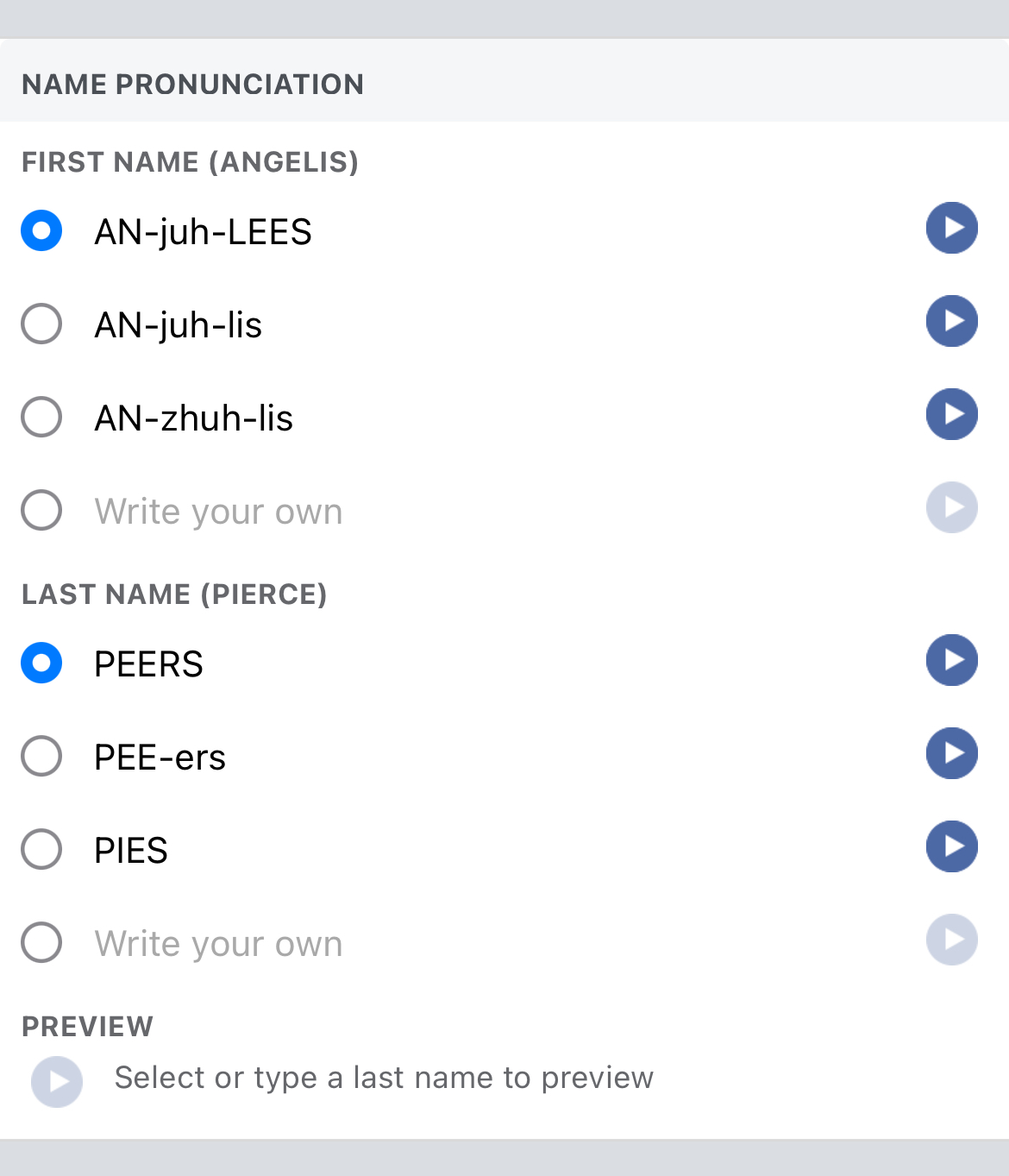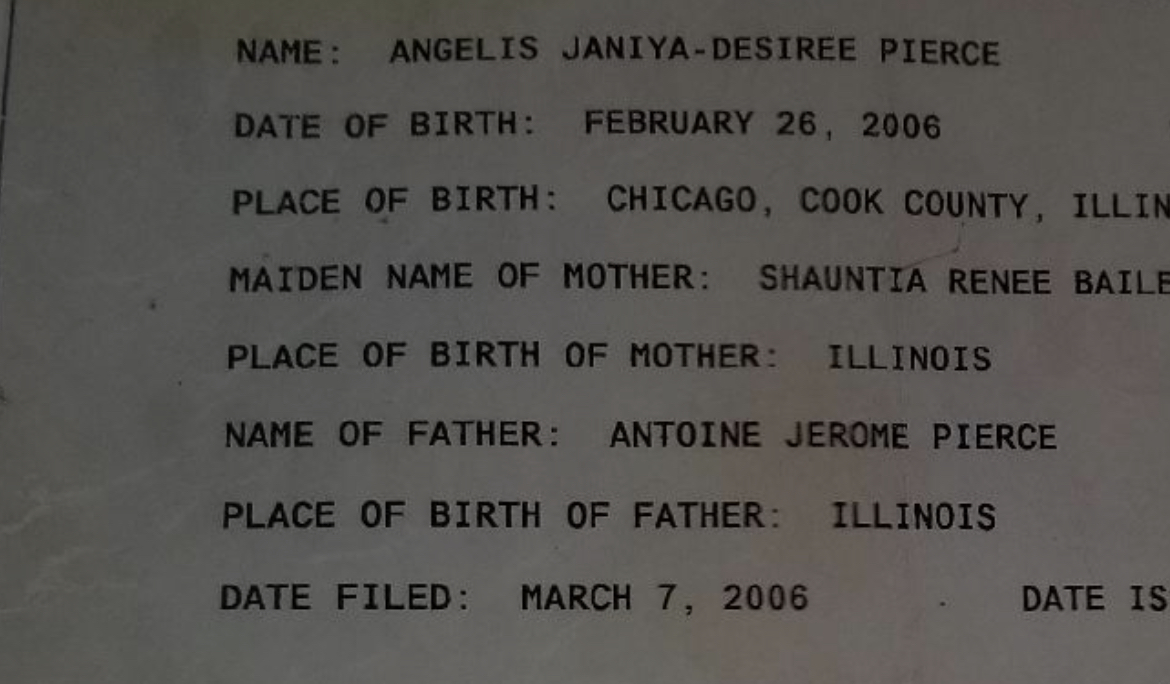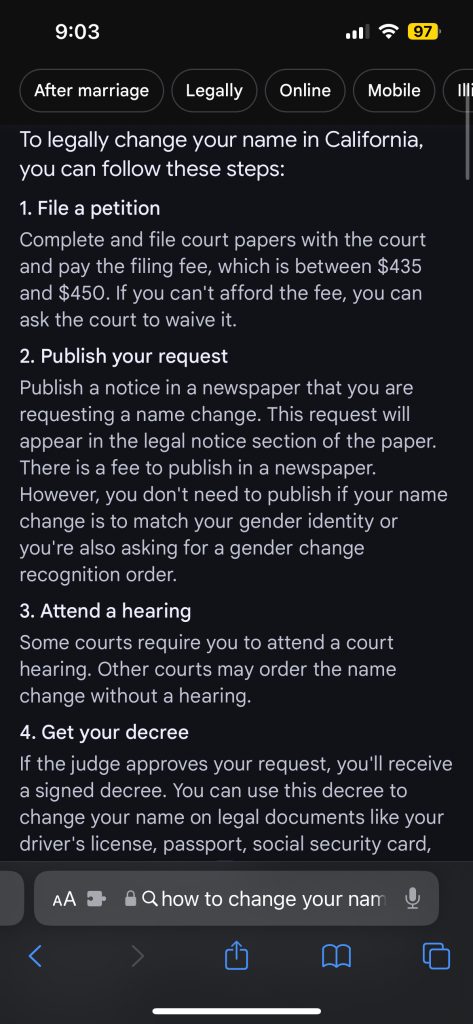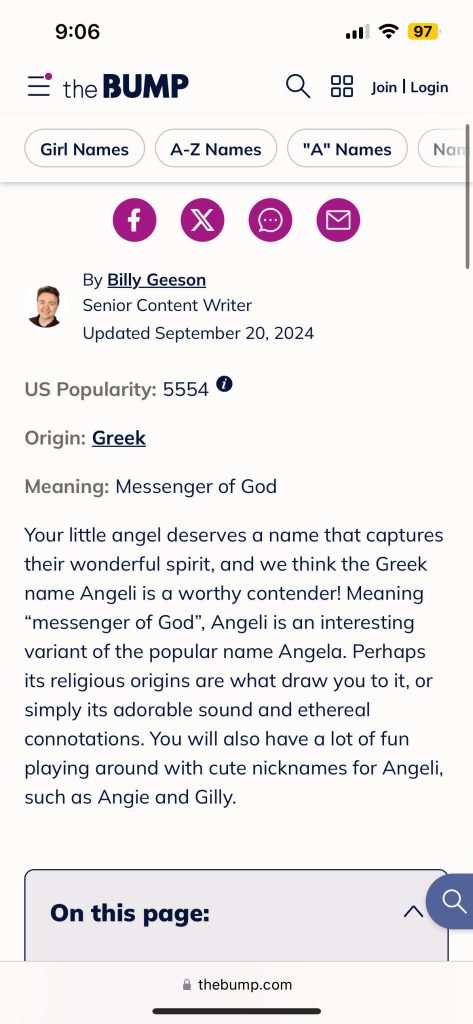My name is Angelis Janiyah Desiree Pierce, and for much of my life, I didn’t think much about names. To me, they were nothing more than labels—simple words used to identify people, devoid of deeper meaning. I never considered names as something that could hold power, symbolize history, or shape one’s identity. That was until I discovered the origins of my name and embarked on a journey of reflection, confusion, resentment, and ultimately, acceptance.

From a young age, people have often mispronounced my name upon first meeting me. Whether it was “Angel-iss” instead of “An-juh-liss” or some other variation, it became almost routine to hear my name spoken incorrectly. I never took offense to it because, in truth, I didn’t see my name as anything special. To me, it was just a collection of syllables—words that had little connection to my sense of self. It wasn’t like my last name connected me to a family I knew well. It didn’t carry any personal history, or so I thought. For much of my childhood, I believed my name lacked meaning because, at that time, it didn’t feel as if it belonged to me.

That changed when I was given an assignment in grammar school. Our teacher asked us to write about the meaning of our names. It was a simple question, but one that left me completely stumped. What did my name mean? And more importantly, why didn’t I know? All the other kids seemed to understand their names, whether it was a family tradition, a favorite character, or a cultural reference. But I had nothing to write, no story to tell. That day, I went home with a growing sense of curiosity. I was determined to get answers.
I turned to the one person who I thought could give me those answers—my mom. I expected her to tell me some profound story about the inspiration behind my name, something that would give me the clarity I was seeking. But instead, she told me, “Your name doesn’t have any specific meaning. It was just your father’s initials.” At that moment, I was hit with a wave of confusion and frustration. My name, this label I had carried all my life, was merely a string of letters that represented someone I didn’t even know—a man who had not been part of my life. My father, who left shortly after my birth, had imprinted his initials on me, leaving behind a name but no relationship. It was strange to think that I had been walking around with the mark of someone I had never met, someone who had played such a small role in my life.
As my mom explained further, I learned that my first and last names were derived from his initials—A.J.P.—and that “Desiree,” my second middle name, was a last-minute addition he had requested during my mother’s labor. The more I thought about it, the more disconnected I felt from my name. It began to symbolize not who I was but who I wasn’t. I wasn’t the daughter of a man I knew. I wasn’t connected to a family through my last name. I wasn’t part of some rich tradition. It all felt arbitrary, and it weighed heavily on me.

This newfound knowledge gnawed at me for weeks. Then weeks turned into months, and months into years. The more I thought about my name, the more I began to resent it. I loathed the idea of carrying a piece of someone who had abandoned my mother and me. It was as if my name was a constant reminder of his absence. I even began looking into ways to legally change my name, imagining a fresh start, a name that I could choose for myself, one that carried meaning I could connect with.

During this period, I avoided using my full name as much as possible. I started asking teachers, friends, and anyone who would listen to call me by my nickname, “Lovey.” At least “Lovey” had a story—a connection to my childhood and the people who cared for me. It felt like mine. Eventually, my teachers noticed that I refused to respond to my full name, and they contacted my mother for a conference.
That was when my mother decided it was time to sit me down and have a real conversation about names, identity, and where we come from. I remember that day vividly. My mom, a strong, independent woman who raised me on her own, shared her own experiences with names. She told me that she too had struggled with feeling disconnected from her name. She grew up in foster care and never knew her biological family. To her, her name was just as random and unconnected as mine felt to me. But then she told me something that changed my perspective entirely. She said, “It’s not about where the name comes from; it’s about what you make of it.”
In that moment, something clicked. I realized that my name didn’t have to define me based on its origins. I had the power to shape its meaning, to make it a reflection of who I was, not who I was connected to. Hearing this from my mother, a woman who had raised me with such love and strength, helped me see my name in a new light. It became a symbol not of my absent father, but of my mother’s resilience. She gave me this name, and in doing so, she gave me a piece of herself. She chose to raise me with love, care, and unwavering support, and that was what my name would come to represent for me.
Over time, I began to embrace my name. It no longer felt like a burden or a reminder of what I didn’t have. Instead, it became a testament to what I did have—a loving, strong mother who had done everything in her power to raise me and give me a good life. My name became a symbol of the strength I had inherited from her and the journey I was on to create my own identity. No longer did I feel the need to distance myself from it. Instead, I owned it, and with that ownership came a sense of pride.

Curious to understand more, I finally decided to look up the meaning of my names. “Angelis,” derived from Greek and Latin, means “messenger.” “Janiyah,” from Hebrew, means “God is gracious.” And “Desiree,” of French origin, means “much desired.” It was fascinating to learn the etymology of each part of my name, but to me, its meaning goes far beyond its linguistic roots. My name, to me, means strength, resilience, love, and the power to define who I am on my terms. It’s a reflection of my journey, my growth, and the person I’ve become.
Now, when I think about my name, I no longer feel the disconnection I once did. I see it as a representation of my life’s path—where I’ve come from, and where I’m going. My name isn’t just a collection of letters; it’s a part of me that I have shaped, just as I will continue to shape the future. It may have started with my father’s initials, but now, it belongs to me. It represents my journey, my mother’s love, and the strength we share. In the end, I’ve come to realize that the meaning of a name isn’t something that’s given to you; it’s something you create for yourself. My name will always mean me.
